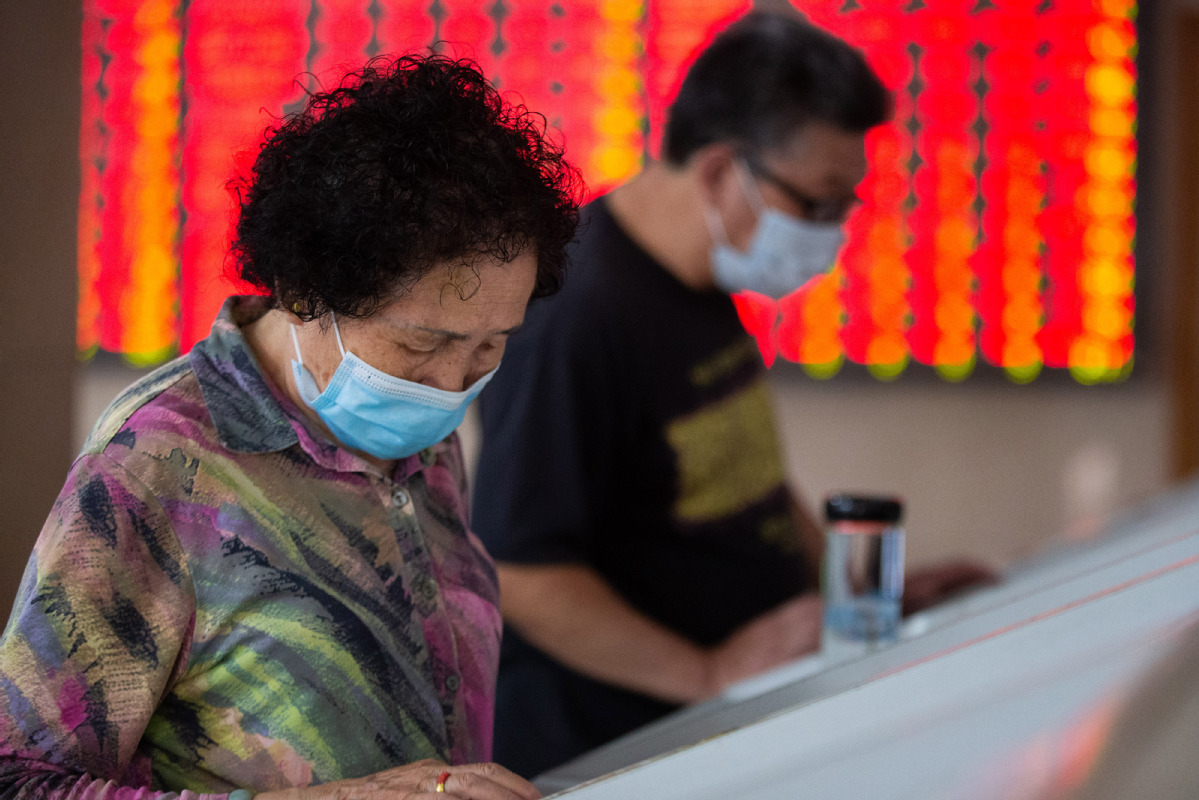STAR brings 'new dawn' to Shanghai


Local bourse at forefront of providing more finance to the technology sector
The technology-heavy STAR Market, which celebrated its anniversary on Wednesday, has given more decisive power to the capital market by piloting the registration-based initial public offering system and facilitated China's economic restructuring by providing more financial support to technology companies, said experts.
The first 25 companies started trading on the Nasdaq-style board on July 22 last year.
Public information from the Shanghai Stock Exchange showed that 140 companies successfully floated shares on the board by Wednesday, with the total market value exceeding 2.7 trillion yuan ($343.2 billion). The SSE STAR Market 50 Component Index will be officially released on Thursday.
China Securities Regulatory Commission Chairman Yi Huiman said in a commentary released on Wednesday that the higher inclusiveness is a major highlight of the STAR Market. The technology-heavy board is more resilient for trials and errors, allowing more room for companies' research and development into untapped areas. Resources can be allocated in most efficient ways with the help of financial tools, he said.
In a white paper released on Wednesday, analysts from Shenwan Hongyuan Securities said that the launch of the STAR Market, together with the pilot registration-based IPO system, will change China's financing structure, which used to be dominated by indirect financing. With direct financing playing a bigger role, technology companies will be able to allocate resources more efficiently.
Dong Dengxin, director of the Finance and Securities Institute at the Wuhan University of Science and Technology, said the launch of the registration-based IPO system has delegated the IPO approval power to the stock exchange and allowed the market to have a greater say in new share sales. The board is also more inclusive by allowing the first-time loss-making companies and those with special shareholding structures to go public, he said.
Suzhou Zelgen Biopharmaceutical Co Ltd is the first STAR Market listed company that did not report profit when it made its debut on the board in January. The company's general manager Sheng Zelin said that pharmaceutical companies were unable to meet the listing requirements of A-share market's main board as most of them could not make profit during the research and development period.
UCloud Technology Co Ltd, which debuted on the STAR Market in late January, became the first A-share listed company with dual-class ownership. The company's chairman Ji Xinhua explained that China's internet giants such as Alibaba and Baidu chose to be listed overseas mainly because dual-class ownership was not allowed in the A-share market. Now that the green light has been given to such ownership, the STAR Market will be the first choice for more Chinese technology companies, he said.
Among the 140 STAR Market listed companies, computer and telecommunications companies account for 21 percent, followed by special equipment manufacturers, software and information technology service providers and pharmaceutical companies.
Tony Mao, chief partner of Ernst& Young Hua Ming LLP, said the STAR Market is dedicated to serve technology companies with core technologies, high market recognition and development plans in line with the country's strategies. Companies with innovative businesses related to internet, big data, cloud computing, automation, artificial intelligence and alternative energies are welcomed.
Que Bo, deputy general manager of the Shanghai Stock Exchange, said the STAR Market has become increasingly appealing to the leaders of emerging industries. By revising the financing rules, the STAR Market will grow into the optimal listing venue for leading Chinese technology companies, propelling the country's economic growth.




































